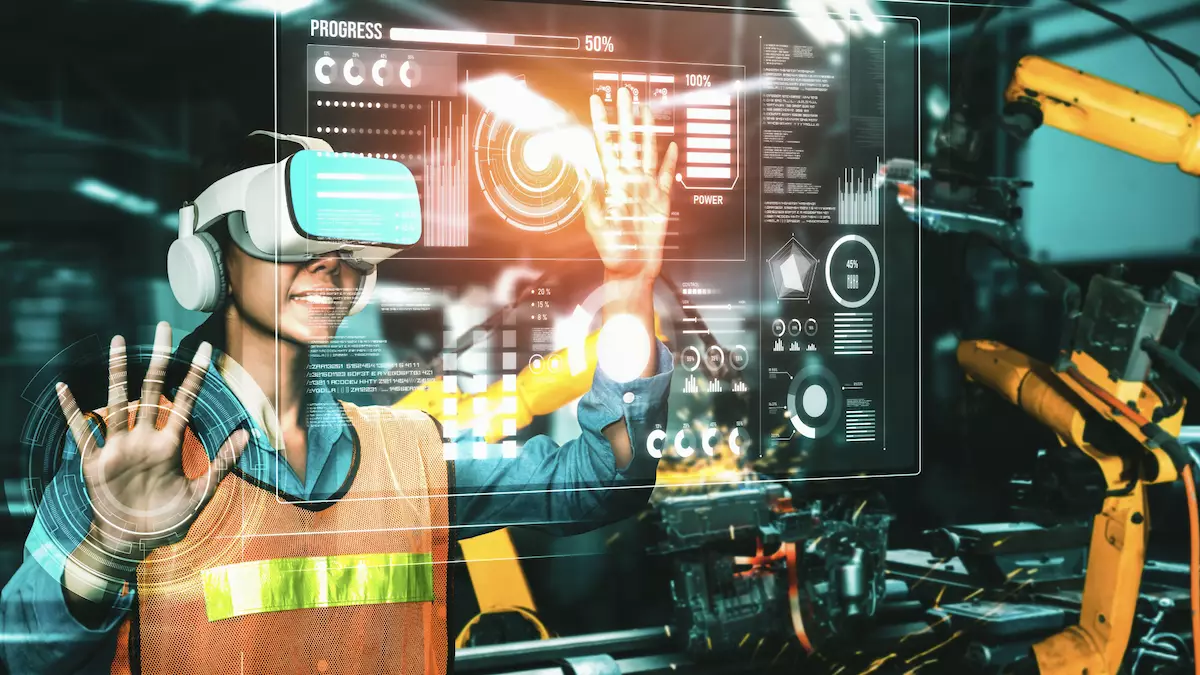A study conducted by Nokia and EY, titled “The Metaverse at Work,” has explored the benefits that companies have observed through utilizing industrial metaverse technologies. The study sourced opinions from 860 representatives across four industry sectors in six countries.
The Metaverse is Here to Stay
The study indicates that the Metaverse is not just a fleeting fad but a substantive, long-term addition to business strategies. Merely 2% of surveyed participants view the Metaverse as a buzzword. At the same time, many companies have already incorporated or are testing metaverse applications.
Companies report that the industrial metaverse is generating considerable commercial worth. A majority of enterprises that have already adopted metaverse applications anticipate these will profoundly change their business operations. Additionally, an overwhelming majority of participants recognize the innovative potential of integrating physical and digital aspects through the metaverse, which they believe will expedite the roll-out, uptake, and monetization of Industry 4.0 strategies within their businesses.
Moreover, companies that have not yet become involved with industrial metaverse technologies have plans to engage soon, with 94% intending to explore the Metaverse in the coming two years.
Leaders in Metaverse Deployment
The US, the UK, and Brazil emerge as the leaders in deploying industrial and enterprise metaverse applications, according to the study. Extended reality is perceived to have the highest potential for transformative value, especially in employee training.
The US and UK are at the forefront, with 65% and 64% of survey participants, respectively, having trialed or fully integrated at least one industrial or enterprise metaverse use case. In contrast, the Asia-Pacific region demonstrates a slower progression in this sphere, with Japan and South Korea both standing at 49% in terms of metaverse deployment or pilot tests.
Promising Use Cases
Enterprises identified extended reality for training as the most promising use case for transformative value, facilitating effective onboarding and upskilling of their workforce. Additionally, three out of the four industries surveyed recognized the potential of virtual R&D in enhancing product design and processes.
The Importance of Technical Infrastructure
The study emphasizes the necessity of strong technical infrastructure, such as cloud computing, AI/ML, and reliable network connectivity, to effectively apply metaverse use cases. This has led to businesses seeking external collaborations to fill the gap in technical expertise.
Executives’ Views on the Findings
Vincent Douin, Executive Director, Business Consulting and Business Transformation at Ernst & Young LLP, commented on the findings, stating that “The industrial and enterprise metaverses have arrived, demonstrating a clear interest in these technologies like extended reality and digital twins to reach business objectives. Many organizations have already moved past planning stages and see tangible benefits from their initial implementations.”
Thierry E. Klein, President of Bell Labs Solutions Research, Nokia, also shared his views, stating that “Companies evidently trust in the Metaverse’s ability to create value in both enterprise and industrial scenarios. This aligns well with our own perspective, based on over 8 years of research at Nokia Bell Labs, that the Industrial Metaverse extends Industry 4.0. As such, those that have already implemented mission-critical communications networks for Industry 4.0 are well-positioned to leverage the Metaverse benefits, as some companies are already demonstrating.”
The transition towards incorporating the Metaverse in business operations is a growing trend. The “Metaverse at Work” study by Nokia and EY demonstrates that companies are recognizing the potential of metaverse technologies and reaping tangible benefits from their application. As we progress, it will be interesting to track the evolution and maturation of metaverse applications in different industrial contexts, potentially reshaping how we perceive and conduct business.

